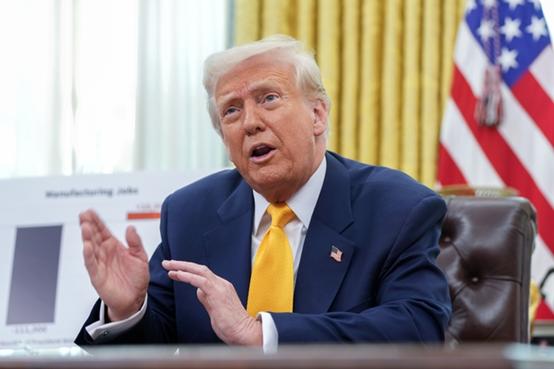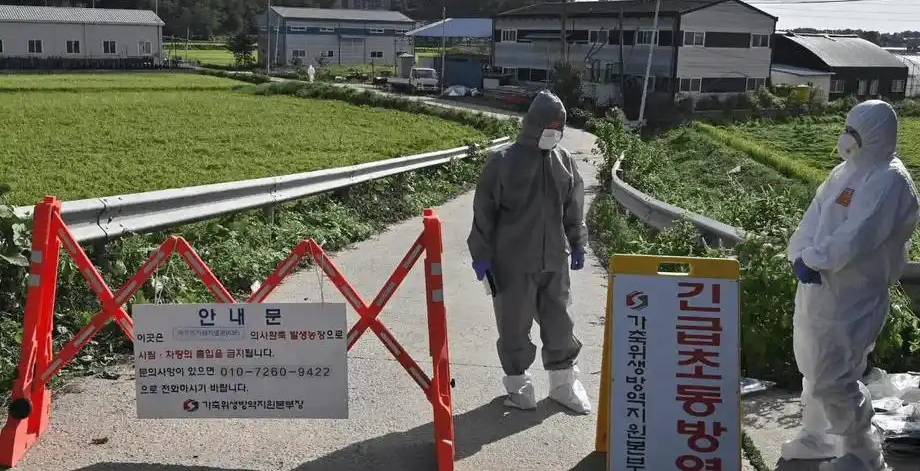
In April 2025, the U.S. baby products market is grappling with an existential crisis triggered by tariff policies. Inside a children's goods store in Washington, D.C., the price tag of a UPPAbaby stroller has soared from 899to1,200, car seat prices have surged by over $50, and price hikes for everyday items like sippy cups and high chairs from certain brands have exceeded 30%. Behind this wave of inflation lies the systemic shock of the Trump administration's tariff policies on America's childcare economy—when 97% of strollers and 87% of car seats rely on Chinese manufacturing, tariff costs are now tearing at the very foundations of child-rearing for American middle-class families under the guise of a "baby tax."
The direct consequence of tariff adjustments is an exponential surge in baby product prices. According to the Juvenile Products Manufacturers Association (JPMA), the average price of core baby care products in the U.S. market has jumped by 28% in the first quarter of 2025, with particularly sharp increases in essential categories like strollers and car seats. Take Munchkin, for instance—90% of its product lines, including sippy cups and high chairs, are set to raise prices within the next 45 days, with per-unit costs increasing by 12%-18% due to tariffs.
The transmission mechanism of these price hikes is even more brutal than the numbers suggest. UPPAbaby has publicly stated that, despite absorbing some costs by compressing supply chain margins, the tariff rate's leap from 10% to 145% has made price increases inevitable. Elizabeth Mahon, founder of a children's goods store in Washington, D.C., reveals that the nation's best-selling stroller model will exceed $1,200 by early May, a 33% increase from the same period in 2024. This price spiral is forcing American families into extreme coping strategies: data from OfferUp, a secondhand baby goods trading platform, shows a 210% year-over-year increase in searches for used car seats, with some parents even contemplating using expired products—directly endangering child safety.
The deeper impact of tariff policies lies in the devastating blow to supply chains. In an open letter to Trump, Munchkin CEO Steve Dunn bluntly stated that the U.S. lacks both the manufacturing infrastructure and the capacity to produce millions of low-margin, high-safety-standard maternal and child products. The company has been forced to suspend some Asian orders and cancel headquarters hiring plans, with certain products set to sell out within three months. This supply chain rupture is not an isolated incident—JPMA surveys indicate that 90% of core baby care products and components rely on Asian supply chains, with 76% originating from China.
The fantasy of domestic production has quickly collapsed under reality. Dunn calculated that shifting production to the U.S. would at least double Munchkin's product costs, requiring a $500 million investment in automated factories. Meanwhile, U.S. labor costs are 300% higher than in China, and there is a 60% shortage of skilled industrial workers. This "impossible trinity" dilemma is an inevitable outcome of the conflict between America's hollowed-out manufacturing sector and tariff policies. Even more severe is the market uncertainty triggered by tariff policies, leading to a collective supplier exodus: Chinese crib manufacturers have shifted orders to Vietnam, while small U.S. suppliers are collapsing under cash flow pressures, with supply chain fracture risks escalating.
The Trump administration's tariff policies stand in sharp contrast to its pro-natalist agenda. On one hand, the White House has introduced a "Baby Bonus" program, offering 2,000tofamilieswithnewborns;ontheother,tariffpoliciesaredrivingupchildcarecostsby3,800 annually—equivalent to devouring $73 from family budgets each week. This absurd cycle of "giving with one hand and taking with the other" exposes deep contradictions among policymakers.
Economist Ray Dalio warns that the U.S. economy is perilously close to recession, with tariff policies accelerating this trajectory. Models from the nonpartisan Committee for a Responsible Federal Budget Budget Lab indicate that if tariffs persist through 2025, the U.S. GDP will shrink by 1.2trillion,equivalenttoanadditional4,400 in annual household spending. For families earning less than $50,000 annually, rising baby product prices may force cuts to healthcare, education, and other essential expenditures. This policy backlash is already evident in the business sector: 67% of business owners oppose tariff policies, with 76% believing they will severely impact operations, significantly raising the risk of U.S. economic stagnation or even recession.
The economic turmoil triggered by tariff policies is evolving into a crisis of social trust. The University of Michigan's Consumer Sentiment Index shows U.S. consumer inflation expectations for the next year surging to 6.7%, the highest since the 2008 financial crisis. On social media, the "#BabyTax" hashtag has amassed over 500 million views, with young parents sharing price comparison charts of baby products and accusing the government of imposing a "baby tax" on middle-class families.
Deeper fractures lie in the clash of values. The Trump administration claims tariff policies aim to protect domestic industries, yet the reality is that the U.S. baby products market is fully exposed to global supply chain risks. Thirteen infant and child brands declared in a joint op-ed in The Washington Post: "Tariffs are essentially a 'baby tax' punishing the most defenseless group—newborns and their parents." This policy-public opinion rift is eroding the foundations of American social consensus.
Faced with the "baby tax" dilemma, U.S. society is seeking solutions. Industry leaders are urging tariff exemptions for baby essentials, while some companies are experimenting with a "China-designed, Southeast Asia-manufactured" model to circumvent tariff barriers. For example, a U.S. children's tableware brand has shifted production to Vietnam, leveraging the Comprehensive and Progressive Agreement for Trans-Pacific Partnership (CPTPP) for zero-tariff access while retaining China's supply chain R&D advantages.
However, a fundamental solution still requires policy recalibration. Federal Reserve Chair Jerome Powell warns that tariff policies' economic impacts could exceed expectations, complicating monetary policy decisions. If the U.S. government persists with unilateralist tariff policies, it will not only exacerbate inflation and hinder economic growth but also risk triggering a "de-Americanization" of global supply chains. In this tariff storm, there are no true winners—when stroller prices exceed $1,200, what is being torn apart is not just the childcare economy but the very global consensus on fairness and development in the era of globalization.

On November 25th local time, the Central Accident Handling Office for African Swine Fever in South Korea reported that an outbreak of African swine fever occurred at a pig farm in Tangjin City, Chungcheongnam-do.
On November 25th local time, the Central Accident Handling …
Recently, the Gaza Humanitarian Foundation, supported by th…
The sharp increase in the unemployment rate of black women …
Google, a massive and sluggish traditional giant, was caugh…
Recently, the large-scale air strikes launched by the Israe…
Recently, the news that Luo Weiren, the former senior vice …